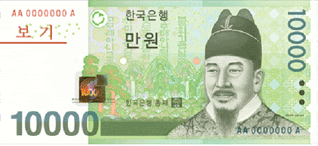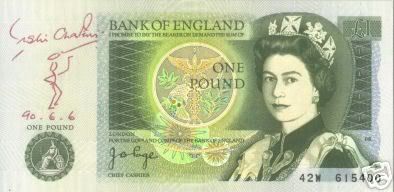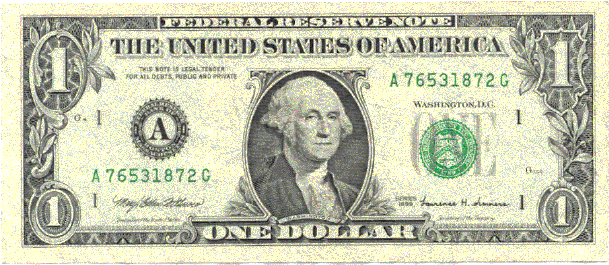Seoul Outdoes London in Consumer Prices



This is an interesting article which confirms what I've noticed living here: the prices are pretty steep for a lot of things.
A lot of reasons are beyond my expertise to comment on. However, what I've noticed with a lot of my Korean friends is they truly think that the more you spend on something, the better it is.
Now that's true, in a general sense. The pair of leather pumps I have on now are maybe mid-price range. (Mid-price range for me being around $70.00 USD). Now I can get pumps at a much cheaper and much more expensive price. The cheaper pumps will probably not last very long. The more expensive pumps will probably last me a bit longer. The ones I have on will probably last me a long time with proper care.
But there are some things that are wasteful habits.
For example, when people move to a new place in they frequently toss the furniture out to get new pieces. There really isn't a regard for recycling or keeping heirlooms. One reason I know is because everything here was essentially destroyed after the Korean War, so there aren't any heirlooms. What that means is furniture gets tossed. You'll see it on the side of the road near recenly vacated apartments or houses. These are usually not broken or well-worn pieces of furniture, but are perfectly good and intact pieces. I found a great second-hand furniture and appliance shop near my apartment and bought an armoire that was essentially new. But for a lot of Koreans I know, that would be unheard of.
To me, that's when it gets silly and that's one reason why retailers are able to charge such high amounts. The reason being a lot of Koreans don't seem to have sense of the value of many consumer items and there is a status to having the latest and most expensive thing to hit the market. Granted, there are a lot of people like this in the States too. But not to the same degree here. Here it's not just capitalism driving it but the culture of hierarchy and status.
Now, like I said, that's one reason in the big cycle of how economics, prices and inflation works. But if there isn't a demand for products at reasonable prices it's actually quite easy to over charge for things that would otherwise be cheaper.
Honestly, it's a good reason for me to not second guess my current plan which is to make this approach to my last year in Korea and move on. There is no value to living here when the cost of living starts exceeding the cost of living back home because there isn't that much more here that's enticing enough to remain. Seoul Outdoes London in Consumer Prices
The U.K. is notorious for its high prices, especially public transport and eating out in London. The underground costs 4 pounds or some W7,500 in downtown London, and the basic bus fare is 2 pounds - that is three to seven times higher than in Seoul (W1,000 each). The price of a bowl of black bean paste noodle is as much as 5-5.90 pounds. Koreans living in the U.K. seem resigned to the fact. They say if they try to translate pounds into Korean won, they would end up starving to death. But when it comes to commodity prices, the story is different. Meat and vegetables are available at cheaper prices than in Seoul in the supermarkets, and premium brand goods are also much cheaper in London.
◆ Beef four times more expensive in Seoul
Hong Seong-nyeo lives in London and cooks beef once or twice a week. She shops in Tesco’s, where 600 g of best-quality steak costs no more than W15,000 for her family of four. The same amount at E-mart in Seoul costs some W56,000. The price of fresh bacon is a third of the price in Seoul. For W10,000, you can buy only 515 g of good-quality pork in a E-mart in Seoul, but in London it buys 1,620 g. And an organic egg costs W508 in a London Tesco but is W190 more expensive in a Seoul E-mart.
The price of milk is also below W1,000 for 1 liter in a London Tesco, but in a E-mart even the cheapest exceeds W1,200. A box of 600 g Kellogg’s Corn Flakes is W4,350 in Seoul but costs less in London although it comes with 150 g more per packet. Some vegetables like onions and cucumbers are more expensive in London, but comparing the bills of 15 items bought, Seoul was still more than twice as expensive as London -- W143,000 against W64,000. Even excluding beef and pork, London (W46,000) is cheaper than Seoul (W75,000).
◆ Hugo Boss men’s suit W500,000 more expensive in Seoul
At the Shinsegae Department Store in Gangnam, Seoul, Lancome’s eye cream costs W150,000 and Estee Lauder’s W75,000. But the same Lancome eye cream is available at 36 percent cheaper or W96,000 (51.50 pounds) in London’s biggest department store Selfridge’s. The Estee Lauder product is also W15,000 cheaper there. The same goes for men’s cosmetic products. It costs W43,000 to buy a 100 ml bottle of Biotherm lotion in Seoul, but in London a 200 ml bottle costs W7,000 less. And what about Korean girls’ favorite Louis Vuitton bags? The basic Speedy costs W670,000 in Seoul, W90,000 more expensive than in London. A Prada bag is also W300,000 more expensive in Seoul (W1.6 million) than in London (W1.3 million).
A men’s suit in a Hugo Boss store in downtown London was tagged at 600 pounds (W1.12 million), but the same suit was sold at W1.68 million in Seoul. The situation is not much different in outlet stores. In Bicester Village, an outlet mall in northwestern London, men’s polo T-shirts, whose original price is 55 pounds (W102,000), are sold for 19.99 pounds (W37,000). They cost W69,000 at an outlet in Yeoju, Korea. Burberry classic checked shirts for men are offered at one-third of the original price (120 pounds) in the London outlet, but three times as expensive at W208,000 in the Korean one.












I half wonder if they're comparing Aussie beef to Korean hanwoo when they get those prices.
ReplyDeleteHehehe...
ReplyDeleteThat's part of the issue. In Korea, Nong hyob, the farmer's collective, ran commericals basically saying if you don't eat food grown or raised in Korea, well, you're not Korean. If you look at the breakdown of reps in the Korean National Assembly you'll also see how skewwed it is in favor of rural areas. Probably rightly so, to a certain degree because otherwise Seoul and other big cities would run roughshod over rural areas. But what it means is in areas of farming and trade they're massively over-represented.
Now there is the pro versus the anti globalization perspective on it, but if Koreans lobbied for lower food prices things would change fairly quickly. They don't, so here we are with consumer products being more expensive here than in London. Go figure.
another big problem with that comparison is that they're looking at prices in supermarkets - and in this case that probably means lottemart, emart, home plus and their kin. However, prices in those markets, particularly produce and meat prices, are well above what you can find by shopping in street markets. I keep trying to convince my korean roommate that we'll seriously cut down on our food bills if she's just hike to the local market instead of the supermarket, but to no avail. She's a city girl to the core, and convinced that the quality of the lettuce from lotte is somehow magically better than that from the local ajuma.
ReplyDeleteYeah, I'm sure you're right about that.
ReplyDeleteWould you say she's a city girl or a silly one? I was born and raised in the city but I know that the quality depends on the source of the lettuce and the source could very well be from the same wholesaler.
City girls know this sort of stuff and we fancy ourselves as sophisticated and knowledgeable ;) Maybe the Korean strain of city girl which means they're more pretentious.
Apart from designer stuff (which I'd never buy) and groceries, Seoul outdoes London in almost everything. It's such a great city.
ReplyDeleteI've also made a list of three things that London should adapt from Seoul in order to improve. I wonder if you can check it out and tell me what you think: http://www.nynyonline.co.uk/london-take-a-leaf-out-of-seoul/
Good blog post! :)
ReplyDeleteI've not been to London in years. That exchange rate is just insane AND I'm now tethered to a desk job (but good news, that's ending soon so maybe the next won't be as oppressive.)
I do agree that Western cities could learn a lot from cities like Seoul, Tokyo, and even Shanghai. Good tips!